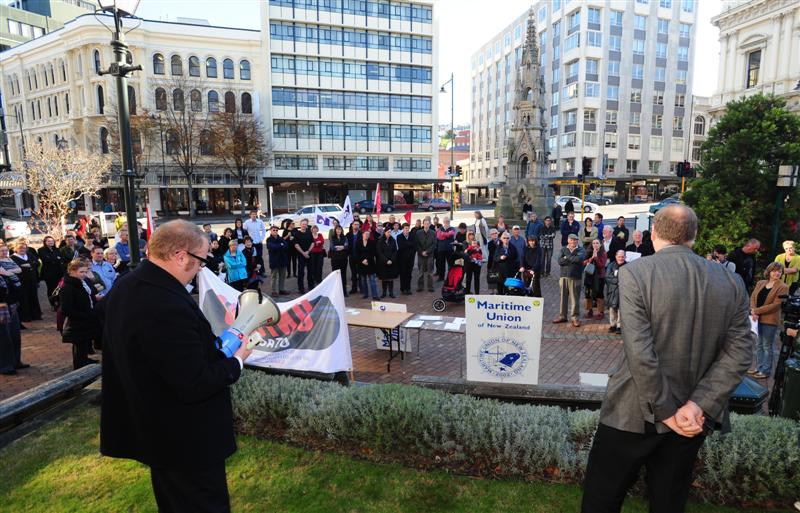The following article was first published as a guest contribution to the July issue of The Spark, by trade unionist and Alliance Party co-leader Victor Billot. Billot is also spokesperson for the campaign to Save Dunedin Metro Post Shop and Kiwibank.
New Zealand Post are closing and downgrading a number of post offices around New Zealand, including Kiwibank outlets. One of these is the Dunedin Metro Post Shop and Kiwibank, in the Exchange, Dunedin’s central business district. Another nearby suburban post agency in Mornington was recently closed as well. A community campaign was mounted to stop the closure in Dunedin. It has been an interesting campaign. The users of the post office are a diverse mix, ranging from business people and conservative professionals, office workers, unionists, all the way through to parents, beneficiaries and the elderly. However most people have come to similar conclusions as to why they are opposed to the closure.
They see the decision as being made by remote managers, with little concern or understanding of local communities. People were angered at the lack of interest from NZ Post, and how the closure would create problems for them. The Post Shops that local people will now have to use are already crowded and busy.

The Post Office is a community hub, which provides useful services for many people, and which cannot be seen in terms of “profit and loss”. Some of the points we tried to get across included how New Zealand Post is owned by the people of New Zealand, and its priorities should reflect our priorities. This involves questioning the state owned enterprise model.
The campaign itself has been about both street action and lobbying, as well as using the media to put the spotlight on NZ Post. Our campaign ran a petition which gained over 2500 signatures, plus around 200 signed letters, and an online petition as well.
We held a public rally, an evening meeting, two “stamp mobs” where we formed queues at post offices to buy a stamp and promote our cause, plus a protest outside the Town Hall which then marched down to the Exchange where we free posted a giant postcard to the CEO of NZ Post Brian Roche.
Mr Roche has been strangely absent from the furore around Post Shop closures, and even the recent fiasco where NZ Post was found to be breaching basic privacy rights with their national research surveys.
He has perhaps been preoccupied with his other role as Chairman of Rugby New Zealand. How many jobs can one CEO do?
The public response from NZ Post and its small army of spin doctors has been patronizing and condescending, which has served to infuriate local people even more.
There has been a disorganized response from city authorities to the problem, and much effort of the campaign was spent trying to co-ordinate and motivate these institutions.
It is interesting that a local National MP has been very sensitive about the issue, sensing perhaps the problems this could cause for him down the track. Some of the more politically inclined supporters of the campaign have noted how the closures are an echo of the 1980s “Rogernomics” era, and perhaps signal a further round of attacks on public services or even privatization. Ironically, the current Chairman of the NZ Post Board is Michael Cullen, one time Labour MP for Dunedin South. He replaced Jim Bolger in the job.
A similar campaign has been running in Grey Lynn, Auckland, and seems to have attracted greater support from political representatives and business groups.
From my own perspective, these attacks on post and Kiwibank services indicate the future direction of right wing Government: cutbacks, service reductions, privatisation and asset stripping, job losses.
However the public backlash will lead to new opportunities to build movements for public services, accountability, resistance and social change. As of the time of writing, the Dunedin Metro Post Shop and Kiwibank faces imminent closure. But the issue has moved into the national media and pressure is mounting on NZ Post management.
Watch this space.

Just another WordPress site